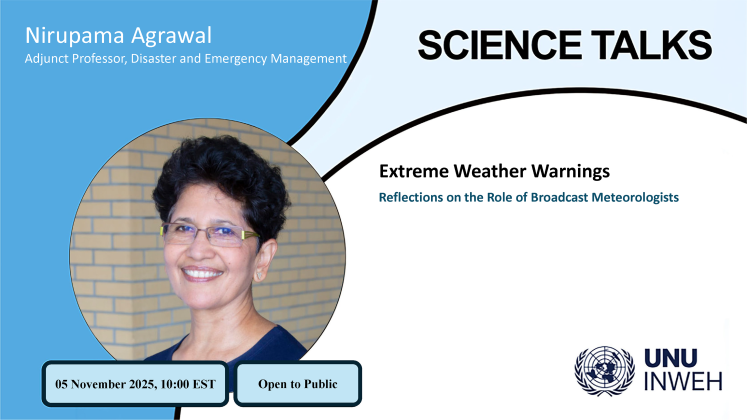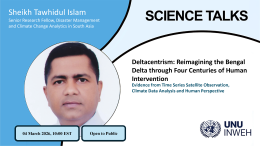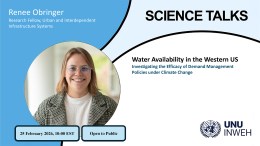The off-the-mark extreme weather warnings that lead to significant social, economic, physical, and environmental damages and, more broadly, the loss of public trust are universal and a common theme. The question is: why are extreme weather warnings sometimes inaccurate, and how can they be improved? This study is based on recent extreme weather-related warnings in Canada, including the 2021 tornado warning in Barrie, ON; the 2021 severe flooding due to the atmospheric river phenomenon in BC; the 2023 tornado warning in Ottawa, ON; and the 2023 flood alerts in Nova Scotia, which were found to be confusing and distracting in response efforts. Environment and Climate Change Canada (ECCC), a federal agency, monitors weather through instruments, radar, and satellite coverage. News outlets, media platforms, emergency management professionals, and other stakeholders use this information in their work and services.
In this Science Talk, Prof. Nirupama Agrawal will discuss how the Canadian system of extreme weather forecasting and warnings, and their communication to the public, can be strengthened. This research aims to identify the root causes of inefficiencies and areas for improvement through an examination of the current warning system, a review of the fundamentals of risk communication, and in-depth interviews with broadcast meteorologists who routinely deliver weather to the public across Canada.
Speaker

Professor Nirupama Agrawal
Adjunct Professor, Disaster and Emergency Management





